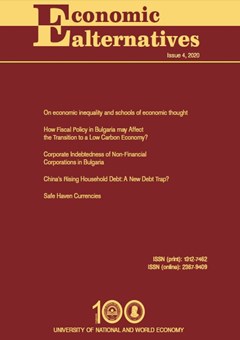Education, Income, Wealth Inequality and Business Cycles in a General Equilibrium Growth Model
Author: Wei-Bin Zhang
Abstract
The paper is concerned with the dynamic interactions between physical capital, human capital, income and wealth inequalities between different households with government subsidy to education. It generalizes the endogenous growth model of a small-open economy proposed by Zhang (2016). Zhang’s paper deals with income and wealth inequalities between heterogeneous households with government subsidy to education. The paper makes a contribution to the literature of economic growth with endogenous education by integrating Solow-Uzawa’s neoclassical growth theory, Uzawa-Lucas model, Arrow’s learning by doing, Zhang’s creative leisure, and Walrasian general equilibrium theory. The model treats endogenous capital and human capital accumulation as the main engines of economic growth. This study generalizes Zhang’s model by allowing constant coefficients to be time-dependent. We simulate the generalized model to demonstrate existence of business cycles due to various exogenous periodic shocks.

